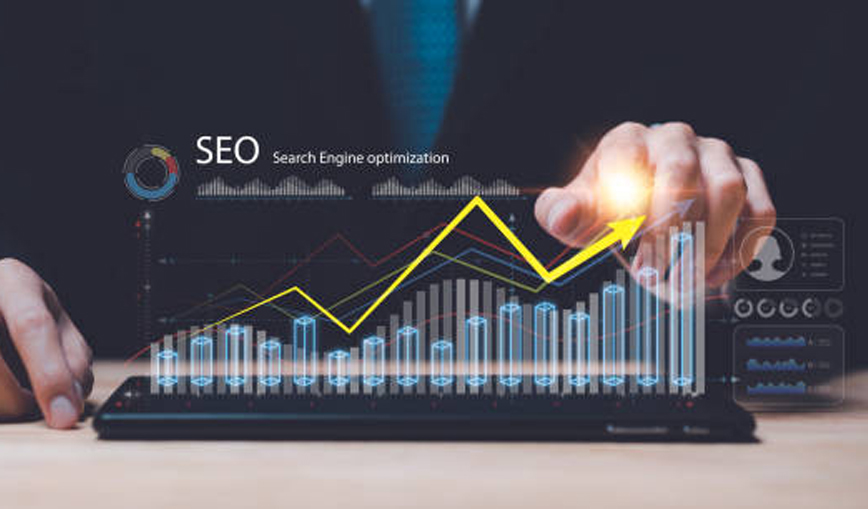Ranking higher on search engines like Google, Bing, and Yahoo is essential for driving organic traffic, increasing visibility, and growing your business. Search Engine Optimization (SEO) is a long-term strategy that requires a combination of technical, on-page, and off-page optimizations. In this guide, we will cover the best practices to help you achieve higher rankings.
Understand Search Engine Algorithms
Search engines use complex algorithms to rank web pages based on relevance, authority, and user experience. Some of the key ranking factors include:
- Relevance: How well your content matches search queries.
- Authority: The number of backlinks and citations from other reputable sites.
- User Experience (UX): Page speed, mobile-friendliness, and engagement metrics.
To improve rankings, focus on optimizing your website according to these factors.
Conduct Keyword Research
Keyword research is the foundation of SEO. You need to identify high-volume, low-competition keywords that match your target audience’s search intent.
How to Conduct Keyword Research:
- Use tools like Google Keyword Planner, Ahrefs, SEMrush, or Ubersuggest.
- Find long-tail keywords that are easier to rank for.
- Analyze competitor keywords to identify ranking opportunities.
- Use keywords naturally in titles, headers, and meta descriptions.
Optimize On-Page SEO
On-page SEO refers to optimizing individual pages on your website to rank higher. Here’s how you can do it:
- Title Tags: Use relevant keywords in H1 titles.
- Meta Descriptions: Write compelling meta descriptions to increase click-through rates (CTR).
- Header Tags (H1, H2, H3, etc.): Use headers to structure your content properly.
- URL Structure: Keep URLs short, descriptive, and keyword-rich.
- Internal Linking: Link to other relevant pages on your site to improve navigation and engagement.
Create High-Quality Content
Content is the backbone of SEO. Without valuable and relevant content, your site will struggle to rank.
Best Practices for Content Optimization:
- Create informative, unique, and engaging content.
- Write long-form content (1,500+ words) to increase dwell time.
- Include images, infographics, and videos to make content visually appealing.
- Optimize for featured snippets by using bullet points and concise answers to queries.
Build a Strong Backlink Profile
Backlinks are one of the strongest ranking signals. Earning high-quality links from authoritative websites improves your domain authority.
How to Get High-Quality Backlinks:
- Guest Posting: Write articles for reputable industry websites.
- Outreach Campaigns: Contact bloggers and journalists to feature your content.
- Broken Link Building: Find and replace broken links on relevant websites with your content.
- Competitor Backlink Analysis: Use Ahrefs or Moz to find where competitors are getting backlinks from.
Improve Technical SEO
Technical SEO ensures that search engines can crawl and index your website efficiently.
Key Technical SEO Factors:
- Page Speed: Use Google PageSpeed Insights to improve loading times.
- Mobile Optimization: Ensure your website is mobile-friendly.
- Secure Website (HTTPS): Install SSL certificates to protect user data.
- Fix Broken Links & Redirects: Prevent 404 errors and optimize site navigation.
Optimize for Local SEO
If your business relies on local customers, optimizing for local SEO is crucial.
Steps to Improve Local SEO:
- Claim and optimize your Google My Business (GMB) profile.
- Use location-specific keywords in meta descriptions and content.
- Get local citations from directories like Yelp, Yellow Pages, and Bing Places.
- Encourage customer reviews on Google and social media platforms.
Enhance User Experience (UX)
Google prioritizes websites that provide an excellent user experience.
How to Improve UX:
- Improve page speed by optimizing images and reducing unnecessary scripts.
- Ensure your website has a clean and intuitive design.
- Use clear call-to-action (CTA) buttons to guide users.
- Make navigation simple and user-friendly.
Utilize AI-Powered SEO Solutions
With evolving search algorithms, AI-driven SEO tools like Algo Ranker from Traffic Magnet SEO can give businesses a competitive edge.
How Algo Ranker Helps Improve Search Rankings:
- AI-Generated Clicks & Searches: Increases engagement by simulating real users searching for your keywords.
- Google My Business Optimization: Enhances local visibility and map rankings.
- User Behavior Simulation: Reduces bounce rates and increases session duration.
- Targeted Traffic Generation: AI agents interact with your website from your desired locations.
Track & Analyze Your SEO Performance
SEO is an ongoing process. Monitoring your progress helps refine strategies.
Best SEO Tools for Tracking Performance:
- Google Analytics: Measures website traffic and user behavior.
- Google Search Console: Tracks search performance and indexing issues.
- Ahrefs, SEMrush, Moz: Provides insights on backlinks, keyword rankings, and competitor analysis.
Final Thoughts: Achieve Higher Rankings with the Right Strategy
Ranking higher on search engines requires consistent optimization, quality content, and AI-powered solutions. Whether you focus on keyword research, technical SEO, content creation, or AI-driven traffic, implementing the right strategies will improve your rankings and online visibility.
Want faster results? Contact Algo Ranking today and use Algo Ranker to boost your rankings instantly!
